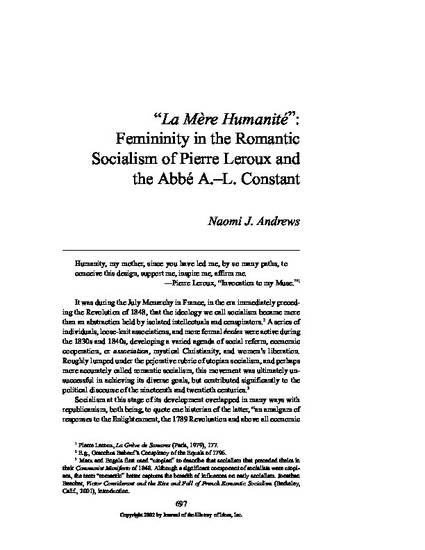
It was during the July Monarchy in France, in the era immediately preceding the Revolution of 1848, that the ideology we call socialism became more than an abstraction held by isolated intellectuals and conspirators. A series of individuals, loose-knit associations, and more formal écoles were active during the 1830s and 1840s, developing a varied agenda of social reform, economic cooperation, or association, mystical Christianity, and women's liberation. Roughly lumped under the pejorative rubric of utopian socialism, and perhaps more accurately called romantic socialism, this movement was ultimately unsuccessful in achieving its diverse goals, but contributed significantly to the political discourse of the nineteenth and twentieth centuries.
